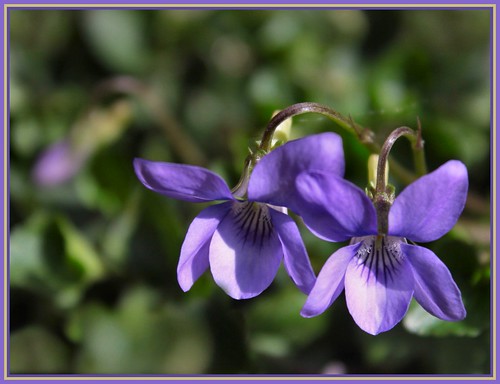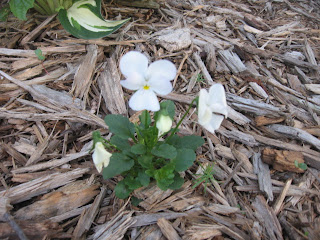As spring comes on, I find myself revisiting my favorite novels. It is the mark of a good, excellent, even masterful novel, if they call to us even after we've read them, to come back and explore a story all over again, discover new nooks and crannies and the secrets buried in them. Spring began with Jane Eyre (Charlotte Bronte), I Capture the Castle (Dodie Smith) and Rebecca (Daphne Du Maurier) - reviving a spirit of the classic, ageless stories that have inspired, compelled or comforted me in my work.
I just finished Rebecca for the second time. It is the newest of the three to my experience. Jane has been with me since high school. And Cassandra (I Capture the Castle) just after I graduated college. An article on NPR stirred up an interest in Rebecca, and here I am, reading her again. A few weeks ago I'd made up my mind that Rebecca was one novel I should have in my collection - I needed it in that odd, frenzied writerly way. I know I will come back to it in the future time and time again. I wanted it with me ready to be taken down and studied, just as Jane Eyre and I Capture the Castle are.
Rebecca's opening line is famous and ghost-like "Last night I dreamt I went to Manderley again." It is more deeply psychological, sitting in the heart of the young (and nameless) Mrs. de Winter's story and looking out on the traces left of her husband's first wife. The narrator's experience colors so much of the novel - her suspense is our suspense. When she is shaken, we are shaken. I could write paragraphs upon paragraphs of how Rebecca draws on Jane, how they're similar, how each is its own unique work of art, but perhaps in another post. For the moment, I am quite content to bask in the sunshine and the shadows of these two works... a house of secrets, a wife's hidden nature, a husband's torment, a second marriage threatened, a haunting sadness, a love of place and nature, hauntings of the living and the dead.
I love Ms. Du Maurier's attention to detail - how those details paint character as well as scene. In the beginning of the tale she introduces the narrator's employer Mrs. Van Hopper thus:
... how different my present companion, his steady, well-shaped hands peeling a mandarin in quiet, methodical fashion, looking up now and again from his task to smile at me, compared to Mrs. Van Hopper, her fat bejeweled fingers questing a plate heaped high with ravioli, her eyes darting suspiciously from her plate to mine for fear I should have made the better choice... (p 10)
Rebecca herself is dead, but she's alive in the imagination of Mrs. de Winter, eclipsing her, overpowering her from beyond the grave:
I must have been the first person to put on that mackintosh since the handkerchief was used. She who had worn the coat then was tall, slim, broader than I about the shoulders, for I had found it big and over-long, and the sleeves had come below my wrists. Some of the buttons were missing. She had not bothered to do it up... There was a pink mark upon the handkerchief. The mark of lipstick. She had rubbed her lips with the handkerchief, and then rolled it in a ball, and left it in the pocket. I wiped by fingers with the handkerchief, and as I did so I noticed that a dull scent clung about it still. (p 120)
Her description of Mrs. Danvers, the housekeeper:
Someone advanced from the sea of faces, someone tall and gaunt, dressed in deep black, whose prominent cheek-bones and great, hollow eyes gave her a skull's face, parchment-white, set on a skeleton's frame. (p 67)
I could go on and on and on, but then my thoughts on Rebecca would be as long, or even longer, than the book itself. It is a masterpiece because every word, every detail is carefully placed for the best affect - the subtlest, most stirring metaphors. The very novel is alive - gorgeously reflective of Manderley itself: a grand old house, well-kept and beautiful but unable to contain the wild spirit stirring at its heart.
You should read Rebecca...
... if you love Jane Eyre. Don't compare them seriously (as to which is the "better" because they're both very different) - just enjoy their similar shades of story
... to catch a glimpse of the restless Cornish sea
... for a compelling, page-turning mystery wrought with lingering grief and silent rage
... for mouthwatering descriptions of food and gardens you can almost smell... the azaleas! the roses!











